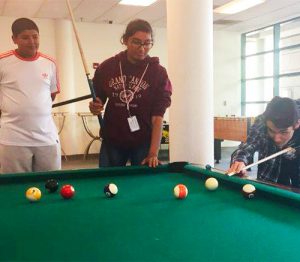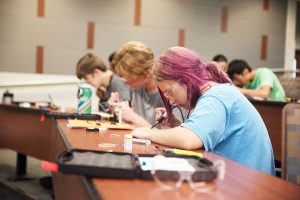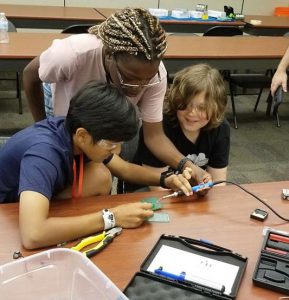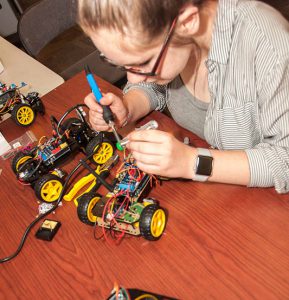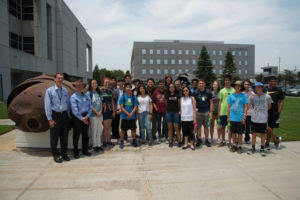Engineering for Teens
Ever dream of building the next generation of smartphones, designing roller coasters that defy gravity, or creating sustainable cities? Engineering is your gateway to making those dreams a reality. This isn’t just a boring textbook subject – it’s the foundation for every cool gadget, innovative structure, and life-changing technology you use every day. In this article, we’ll unpack the exciting world of engineering, showing you how YOU, as a teenager, can be a part of it. Get ready to explore different engineering disciplines, discover the problem-solving skills you already have, and see how engineering can turn your passions into a future career that makes a difference.
What is Engineering?
Engineering is like using science and math as your superpowers to make things happen and solve problems. Engineers are the creative minds behind everything from the amazing gadgets you love to the bridges you cross every day.
- Spot a problem: Maybe you see a crowded sidewalk or a toy that breaks easily.
- Imagine a solution: How can you design a wider sidewalk or a stronger toy?
- Use your knowledge: Science teaches you how things work, and math helps you plan and build.
- Get creative! Sketch, tinker, and experiment to find the best solution.
- Build it! Bring your idea to life!
The coolest part? There are tons of different engineering specialties, just like there are many flavors of ice cream! Here are a few examples:
- Mechanical engineers: Like building robots and machines? That’s them!
- Civil engineers: Ever wondered how bridges are so strong? They’re the masterminds behind them!
- Electrical engineers: Your favorite video games and phones? Electrical engineers make those work!
- Aerospace engineers: They design amazing airplanes and rockets that soar through the sky!
The next time you see something cool or encounter a problem, remember – you have the potential to be an engineer! Engineering for teens and kids is all about sparking curiosity and showing you how the things you love work. It’s about using your imagination and becoming a problem-solver who can build a better future!
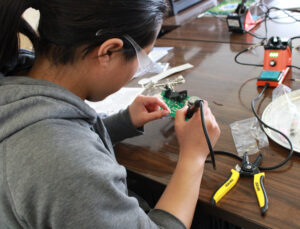
Why Engineering is Awesome for Teens
Forget dusty textbooks, engineering is about unleashing your creativity, becoming a problem-solving whiz, and leaving your mark on the world. Here’s why engineering is the ultimate adventure for teens like you:
-
Unleash Your Inner Inventor: Got a million ideas buzzing in your head? Engineering lets you turn those ideas into reality. From robots and drones to eco-friendly cities and mind-blowing apps, engineers are the masterminds behind the coolest innovations.
-
Become a Problem-Solving Superhero: Engineers are the ultimate problem-solvers. They see challenges as opportunities to create something amazing. Whether it’s designing a stronger bridge or developing a cleaner energy source, engineering equips you with the skills to tackle real-world issues.
-
Hands-on Learning is the Best Kind: Forget boring lectures! Engineering is all about getting your hands dirty (in a good way!). You’ll be building prototypes, tinkering with circuits, and testing your designs – learning by doing is the motto here.
-
Make a Real Difference: The coolest part? Engineering allows you to make a positive impact on the world. From creating sustainable solutions to building life-saving medical technology, engineers contribute to a better future for everyone.
-
It’s More Than Just Textbooks: Engineering is a diverse field with something for everyone! Do you love video games? Check out electrical engineering. Are you fascinated by space exploration? Dive into aerospace engineering. There’s a perfect engineering branch waiting to spark your passion.
How to Get Involved in Engineering as a Teen
The world of engineering is calling, and you, as a curious and innovative teen, are ready to answer! But where do you begin? Here are some exciting ways to get involved in engineering and explore your passion:
-
Summer Camp!: Channel your inner inventor at an engineering summer camp! Here at TryEngineering we offer an engineering summer program with hands-on activities, workshops, and challenges that let you explore different engineering disciplines. Build robots, design bridges, and get a taste of the engineering life.
-
Engineering Clubs: Many schools have amazing engineering clubs like robotics teams or science Olympiads. Join these groups to collaborate with like-minded peers, participate in competitions, and put your engineering skills to the test!
-
Check out Online Resources: The internet is bursting with resources for budding engineers! Explore websites like IEEE for interactive activities, coding challenges, and engineering news. You can even find online courses that introduce you to specific engineering fields.
-
DIY Projects at Home: Who needs a fancy lab when you have your imagination? There are tons of cool engineering projects you can tackle at home with everyday materials. Check out some of the easy at home activities you can do below
Remember, engineering is a journey, not a destination. Start exploring, embrace the challenges, and have fun! The more you delve into the world of engineering, the more you’ll discover your unique talents and interests
Engineering Projects for Teens
Engineering for teens isn’t just about complex concepts – it’s about getting your hands dirty with fun, achievable projects you can conquer at home. Here are some awesome engineering projects you can work on at home, using everyday materials to bring your creative ideas to life! So, grab your toolbox (or maybe just a cardboard box!), and get ready to explore the exciting world of engineering for teens!
The engineering projects we go over here are some of the exciting activities you can experience at our engineering summer camp! Our program offers a fun and immersive environment where you can tackle these challenges alongside experienced instructors and fellow engineering enthusiasts. Get ready to learn new skills, collaborate with your team, and discover the thrill of bringing your creations to life – all within our action-packed engineering camp!
Electrical Engineering Projects for Teens
Building an AM Radio
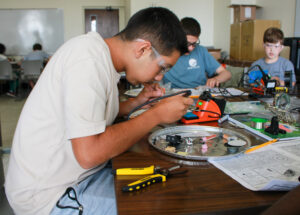
Spark your teen’s interest in electrical engineering by building a working AM radio from a kit! This engaging project is a perfect introduction to the fundamentals of electrical components and soldering. They’ll gain hands-on experience assembling the kit, mastering soldering techniques, and ultimately creating a functioning radio. This beginner-friendly project is a fantastic way to ignite their passion for electrical engineering and build a strong foundation for future exploration!
Civil Engineering Projects for Teens
Build Your Own Bridge
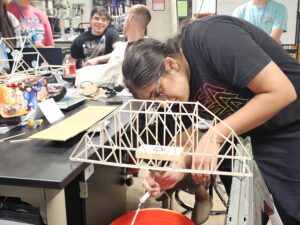
Want to experience the thrill of civil engineering at home? Get ready to build your own mini-bridge using everyday materials! Just like our campers in our popular civil engineering module, you can explore how bridges handle weight and discover the secrets of strong design. Gather common household items like popsicle sticks, straws, or even paper – the possibilities are endless! Experiment with different designs, test their load capacity, and see which creation reigns supreme. This fun activity is a fantastic introduction to civil engineering concepts, and who knows, it might even spark a passion for building the bridges of tomorrow!
Mechanical Engineering Projects for Teens
Straw Rocket Challenge

This straw rocket challenge will introduce you to the exciting concepts of propulsion and basic mechanical engineering. Gather some everyday materials like straws, paper, tape, scissors, and rubber bands. The goal? Design and build a straw rocket that can travel the farthest distance using the power of compressed air! You’ll experiment with crafting a rocket body, potentially even adding fins for stability, and explore how to use a rubber band to create the propelling force. By launching your creation and observing the results, you’ll gain insights into concepts like thrust, drag, and stability – all while having a blast watching your rocket soar! This project is a simple yet engaging way to spark your passion for mechanical engineering!
Aerospace Engineering Projects for Teens
Build Your Own Glider
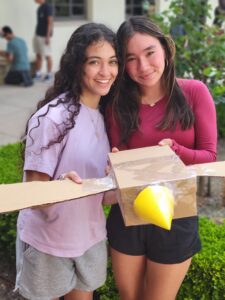
Here’s your chance to take flight with a fun aerospace engineering project you can do right at home! This glider challenge will put your creativity and problem-solving skills to the test as you explore the fascinating world of flight. Gather some common household materials like cardboard, straws, tape, scissors, and maybe some string or thread. Just like our campers in our aerospace engineering program, you’ll be the designer, builder, and test pilot of your very own glider!
Your challenge will be to build a glider that can carry a lightweight payload (think a small toy car or even a crumpled piece of paper) and achieve the farthest glide distance. You can experiment with different wing shapes and sizes, you’ll be learning about the key principles of flight, like lift and drag. Lift is the force that keeps airplanes airborne, while drag is the force that opposes movement. By crafting the optimal wing design, you’ll help your glider stay aloft for longer. This project is a fantastic introduction to aerospace engineering concepts in a fun and accessible way. It allows you to explore the science behind flight and get a taste of the exciting world of designing aircraft!
Ready to Explore a Future in Engineering?
If you’re fascinated by how things work, love to solve problems, and dream of building a brighter future, then engineering might be the perfect path for you! The TryEngineering Summer Institute offers an incredible opportunity to ignite your passion and explore the diverse world of engineering. Immerse yourself in exciting modules that delve into different engineering disciplines, from building robots to designing sustainable cities. Connect with like-minded peers, learn from inspiring experts in the field, and all at one of our amazing college campus locations across the country! The TryEngineering Summer Institute is more than just a program – it’s a journey of discovery that could shape your future. Are you ready to take flight?

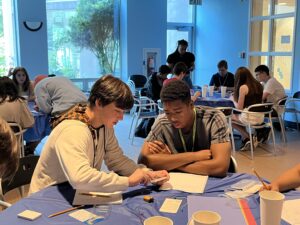


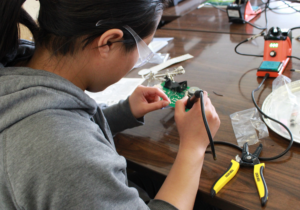 Spark your child’s curiosity and empower them to become the innovators of tomorrow! If you’re looking to get your child interested in STEM and are looking to find activities that go beyond textbooks, consider enrolling them in our engineering summer camp. Our program features hands-on learning, allowing students to delve into the exciting world of STEM. Through learning in the classroom combined with engaging challenges, campers will build critical thinking, problem-solving, and collaboration skills – all while having a blast!
Spark your child’s curiosity and empower them to become the innovators of tomorrow! If you’re looking to get your child interested in STEM and are looking to find activities that go beyond textbooks, consider enrolling them in our engineering summer camp. Our program features hands-on learning, allowing students to delve into the exciting world of STEM. Through learning in the classroom combined with engaging challenges, campers will build critical thinking, problem-solving, and collaboration skills – all while having a blast!





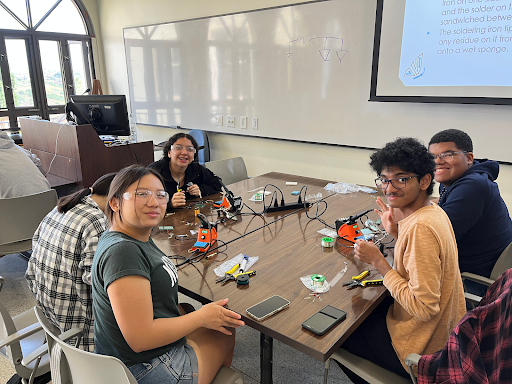
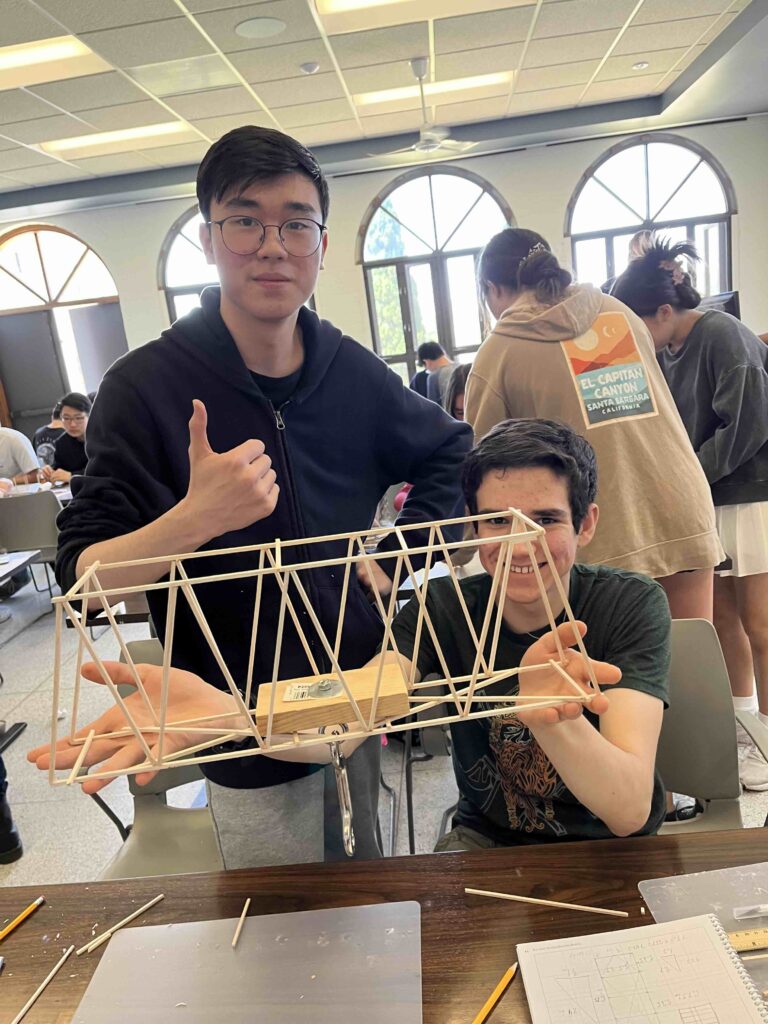
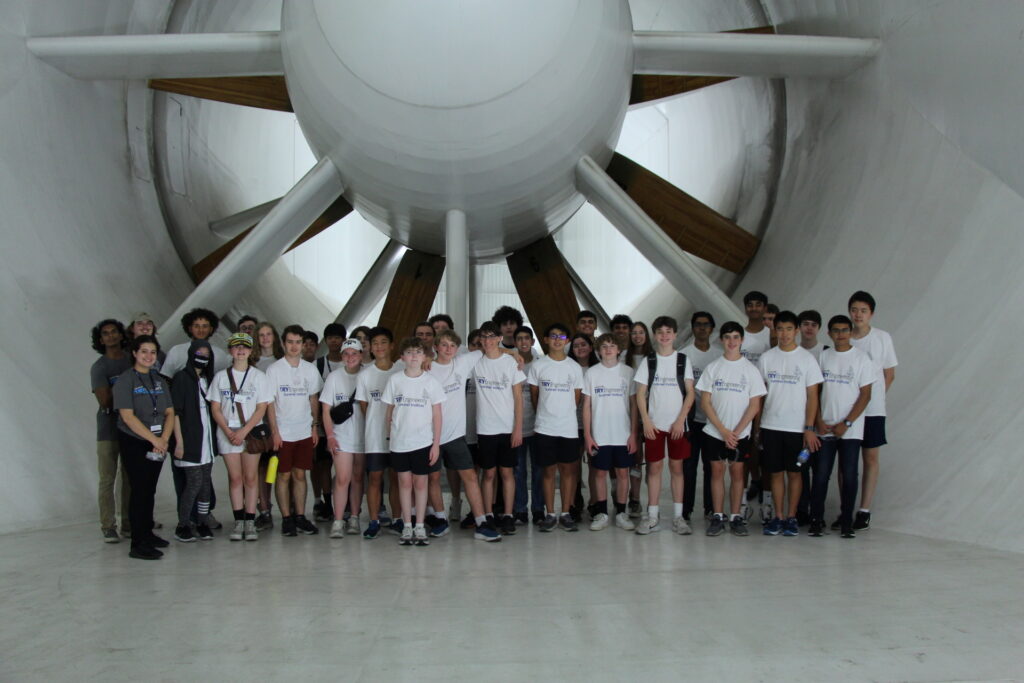


 With nonstop sunshine and the beaches, strands, shopping and more just a stone’s throw from campus, our USD TESI students will really have a wonderful summer. With such beautiful surroundings, we get the chance to explore and maybe even find the legendary fish taco truck!
With nonstop sunshine and the beaches, strands, shopping and more just a stone’s throw from campus, our USD TESI students will really have a wonderful summer. With such beautiful surroundings, we get the chance to explore and maybe even find the legendary fish taco truck! The University of Pennsylvania is a fabulous, safe urban campus located in the heart of Philadelphia. This allows us easy access to many of the local sights, sounds and flavors available to us!
The University of Pennsylvania is a fabulous, safe urban campus located in the heart of Philadelphia. This allows us easy access to many of the local sights, sounds and flavors available to us! The entrance is staffed by Penn Security 24/7. Inside is our air-conditioned wonderland, packed with the same fabulous amenities the Penn students enjoy. We also have our own outdoor area, inside the secure walls, where we have patio seating, tables, a grassy area, and more. It is quite lovely.
The entrance is staffed by Penn Security 24/7. Inside is our air-conditioned wonderland, packed with the same fabulous amenities the Penn students enjoy. We also have our own outdoor area, inside the secure walls, where we have patio seating, tables, a grassy area, and more. It is quite lovely.




 Past students have had the opportunity to discover on-campus engineering tools, equipment and technology that will be available to them as future engineering students. In previous summers we have toured the engineering departments at our host venues to meet and greet and see what are the latest aspects and cutting edge work that is being done.
Past students have had the opportunity to discover on-campus engineering tools, equipment and technology that will be available to them as future engineering students. In previous summers we have toured the engineering departments at our host venues to meet and greet and see what are the latest aspects and cutting edge work that is being done.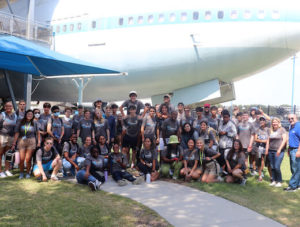 Get a peek at the inner workings of top engineering companies and centers and discover the world inside your dream career! In previous years, our students:
Get a peek at the inner workings of top engineering companies and centers and discover the world inside your dream career! In previous years, our students: Students will gain valuable knowledge from engineering professionals on how to succeed in college and in an engineering career.
Students will gain valuable knowledge from engineering professionals on how to succeed in college and in an engineering career.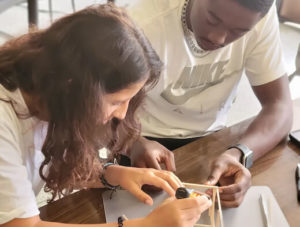 TryEngineering Summer Institute students explore engineering design challenges through hands-on teamwork. Previous students participated in projects such as:
TryEngineering Summer Institute students explore engineering design challenges through hands-on teamwork. Previous students participated in projects such as:



